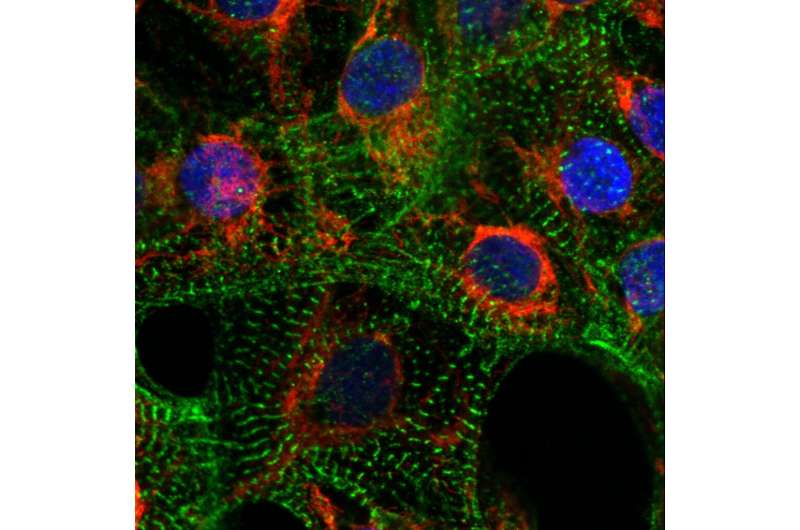This article has been reviewed according to Science X's editorial process and policies. Editors have highlighted the following attributes while ensuring the content's credibility:
fact-checked
peer-reviewed publication
trusted source
proofread
Mutation puts women at higher risk of heart failure

When the PRDM16 gene mutates, heart muscle cells undergo changes in their metabolism. This increases the risk of congenital heart failure in women more than men, as a ECRC research team led by Sabine Klaassen and Jirko Kühnisch reports in Cardiovascular Research.
Heart failure can be caused by a congenital heart muscle disease, or cardiomyopathy. There are a variety of causes, such as hereditary mutations in the PRDM16 gene, as Professor Sabine Klaassen and her colleagues demonstrated back in 2013. A team led by Klaassen and Dr. Jirko Kühnisch from the Experimental and Clinical Research Center (ECRC), a joint institution of Max Delbrück Center and Charité–Universitätsmedizin Berlin, has now taken a closer look at this defect in mice.
The scientists discovered that mutations in the PRDM16 gene alter the metabolism of heart muscle cells, causing the heart to become much weaker. Female mice with this genetic defect experience significantly more heart problems than males. "This result is surprising because males tend to be affected by congenital heart failure earlier and more severely than females," says Klaassen, who also works as a pediatric cardiologist specializing in cardiogenetics at the German Heart Center at Charité (DHZC).
Heart muscle no longer pumps properly
In experiments with mice, which began in 2016, the team has now been able to clearly confirm that mutations in the PRDM16 gene cause heart failure. The researchers also uncovered the underlying mechanism, showing that the deactivation of the PRDM16 gene alters the fat and glucose metabolism of the heart cells.
This ultimately causes the heart muscle to become spongy, enlarged and unable to pump blood properly. "The gender differences may indicate that the metabolism of men's and women's hearts differs," said first author Kühnisch.
The fact that the PRDM16 mutation may lead to metabolic heart failure is now stored in a genetic database that physicians can use for diagnostic purposes. "If a genetic test identifies this mutation, the cardiologist will know what causes the heart disease," explains Klaassen. She adds, "We think that the genetic changes may also be relevant, albeit to a lesser extent, to heart failure that occurs in older patients." Both scientists are affiliated with the German Center for Cardiovascular Research (DZHK).
More information: Jirko Kühnisch et al, Prdm16 mutation determines sex-specific cardiac metabolism and identifies two novel cardiac metabolic regulators, Cardiovascular Research (2023). DOI: 10.1093/cvr/cvad154


















